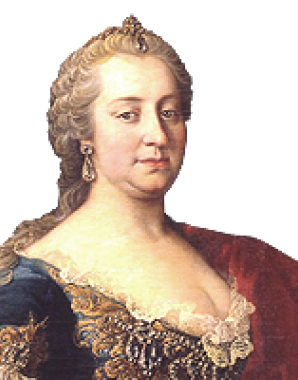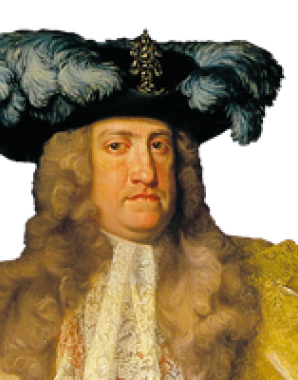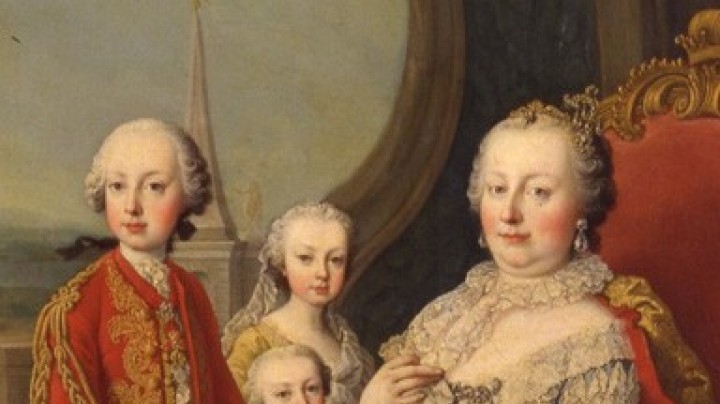Joseph II: The long-awaited son
Following the births of her first three children, who were all girls, Maria Theresa was at last delivered of a boy on 13 March 1741. Joseph, as this eagerly-awaited son was named, arrived at the perfect moment.
The existence of the Monarchy, whose throne Maria Theresa had inherited from her father in 1740, was far from secure. The stipulations of the Pragmatic Sanction, which was intended to secure the transfer of power to Charles VI’s elder daughter, were now being challenged by the rival powers in the European arena, with Prussia, Bavaria and Saxony laying claim to various Austrian territories. In the ensuing War of the Austrian Succession the young monarch made desperate endeavours to maintain her position.
In her new son Maria Theresa now had a politically opportune tool to reinforce her claim on the throne. She had been only conditionally accepted as a female ruler by the Estates of her various dominions, it being as yet unforeseeable that she would later prove to be an extremely capable and energetic ruler. Now she could act as if holding the throne in readiness for her son. Joseph was presented to the world as a male successor who would eventually assume the reins of power.
Maria Theresa immediately used her young motherhood for her own ends. According to a patriotic legend, she appeared before the Hungarian Diet with the infant Joseph in her arms in order to plead for assistance from the Estates. Moved by her plight, the Hungarians instantly granted her request to acclamatory shouts of ‘Life and blood!’.
Idolized by his mother and the court, the little prince was a spoiled and cosseted child, in time becoming a difficult, obstinate adolescent who was regarded as precocious and haughty. Steeped in the importance of his position and equipped by nature and upbringing with great self-esteem, he retained a sense of his mission and feelings of superiority for the rest of his life.
Even Joseph’s early writings reveal his attitude towards the office of ruler. He thought that a monarch should sacrifice everything for the welfare of his people. In keeping with his maxim ‘Everything for the people, nothing by the people’, he did not think that subjects should be given a voice in the political process. Joseph saw his role as that of a benevolent despot who was obliged to coerce his unwitting people for their own good.















